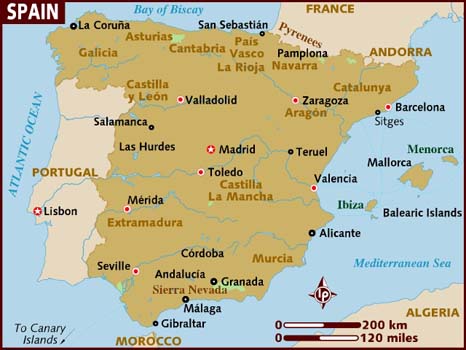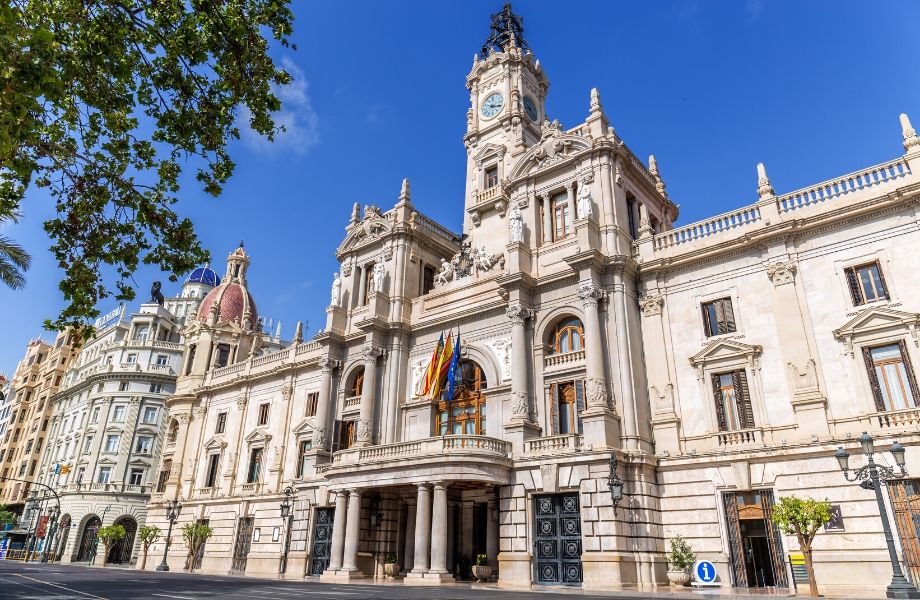 myCSUSM
myCSUSMSpain - Valencia
University of Valencia
University Overview
Established in 1499, the Universitat de Valencia is one of the oldest universities in Europe. Serving nearly 60,000 students, the university is spread across three campuses and offers classes in over 90 departments including the humanities, social sciences, and the natural sciences.
Many students come to Valencia seeking fluency in Spanish. Since this is a full-immersion program, participants should attain a minimum of two years' Spanish language study before departure, although completing Spanish through Spanish 303 is recommended. Students who lack the confidence necessary to study in their majors in Spanish could consider pursuing a Spanish minor while at Valencia and focus entirely on language study. Ample course work is available in the field of Spanish language, linguistics, literature and theater. Course work and the academic structure can be quite challeging at Valencia. As such, only advanced students with language fluency should consider this exchange.
The University also offers free, non-credit classes in Catalan for students interested in learning Valencian Spanish.
City Overview
Founded in 137 BC, the city of Valencia is located on the Mediterranean coast about
190 miles east of Madrid and 240 miles south of Barcelona. With a population of close to 800,000, Valencia is Spain's third largest city and a lively
center for today's youth culture who make up over 10% of the total city's population.
Boasting a unique blend of old and new, Valencia will charm visitors with all its
benefits of urban life in a coastal environment including excellent beaches, nightlife,
and ample architectural gems from the Gothic, Renaissance, Baroque and Modern periods.
population of close to 800,000, Valencia is Spain's third largest city and a lively
center for today's youth culture who make up over 10% of the total city's population.
Boasting a unique blend of old and new, Valencia will charm visitors with all its
benefits of urban life in a coastal environment including excellent beaches, nightlife,
and ample architectural gems from the Gothic, Renaissance, Baroque and Modern periods.
The city and the university offer many cultural and recreational activities including musical performances, museums, and sports. Perhaps what Valencia is best known for, however, is Las Fallas, a celebration held each year in mid-March. The entire city participates and the fallas, gigantic wood and plaster models, are built in the streets. On the final night of the celebration, the fallas are set ablaze amid a fireworks display and large street-fair.
Valencia is a vibrant city with much to offer students and is within very easy access of both Madrid and Barcelona through its excellent public transportation system.
Program Highlights
- Courses available for most majors provided prerequisites are met!
- All classes are taught in Spanish (or Catalan), so a high level of proficiency in Spanish is required.
- Free Catalan language classes.
Academic Calendar
Fall Semester: Mid-September to late January
Spring Semester: Early February to mid-July
Academic Year: Mid-September to mid-July
Please see the 2020-21 Academic Calendar for specific dates
Academic Focus
- Exchange students can enroll in any class, provided they meet the prerequisites. Certain fields may be space-limited and unavailable for visiting students. Please be aware that there are three campuses at the University of Valencia, spread across the city. Most students in the humanities study at the Blasco Ibanez campus, also home to the International Office.
- Teaching can be much more lecture-focused than the discussion-based American model. Keeping open lines of communication between your professor, teaching assistant and yourself will greatly help you, especially if you are having second-language learning issues.
- Confidence in both oral and written communication in Spanish is essential. All final exams tend to be comprehensive and essay style. Advanced non-native speakers are still very much encouraged to apply! Spanish skills will definitely improve while abroad!
- All work transfers back to San Marcos and can be used to fulfill all graduation requirements.
- University of Valencia Grading Scale
Language of Instruction
Spanish
Requirements
- Class Level: Upper-division status (completion of 60 units)
- GPA of 2.75 or above and good academic standing to departure
- Two and a half years or more college level Spanish
- Special Note to Business Majors: In order to receive credit for upper-division courses abroad, you must have already completed your Pre-Core course work at CSUSM.
Units
15 semester units/30 ECT units (European Credit Transfer system). Typically this equates to 4-5 classes/semester.
The European Credit Transfer system is calculated in a 2:1 ratio. For example, a 6 ECT unit class will count as 3 CSU semester units.
Housing
There is no Housing Office at the University of Valencia, however, two on-campus living-learning communities have been built in recent years. On-campus housing is limited and can be very costly. The two residence halls available are: Damia Bonet Hall of Residence and Rector Pesset Hall of Residence.
There are also many accommodation services to help visiting students find shared flats or homestays for a small fee. A few recommended by the university are:
The C.A.D.E. service of the University of Valencia also provides lists of shared flats offered by other university students. You can contact them upon arrival at the following address:
Aulario III (Behind Colegio Mayor Luis Vives) Avda. Menendez Y Palayo, s/n- 46010 Valencia Tel. 34-96-386-47-71Otherwise we suggest arriving to campus one to two weeks prior to your program start date to consult with ads for accommodation in weekly newspapers like Trajin, El Baul, etc. and/or check the notice boards on campus.
Estimated Expense
- Students pay their normal State University Fee to CSU San Marcos, currently $3,858/semester. No tuition or fees due at the University of Valencia.
- On-campus residence: $850-$1,000 per month, depending on type of accommodation, including meals. Shared apartments available $400-$600 per month
- Health Insurance: $265/semester.
- Cost of meals and personal expenses will vary, but average $600/month.
- Spanish Student Visa: $160
- Sample 2020-21 Budget
Application Deadlines
For Fall Semester/Year Study*: March 15
For Spring Semester Study: October 1
*NOTE: Fall semester exams can go through the end of January. There is no guarantee students can move exams up to attend Spring term at CSUSM. Plan accordingly.
How to Apply
- Consult with the CSU San Marcos Study Abroad Advisor in ELB 588 to determine if you are eligible for this program.
- Visit the University of Valencia website for International Student Exchange to learn about the University.
- Visit a good tourism site such as Valencia City Guide to see if you could live there for a semester.
- Obtain course descriptions from the University of Valencia Online Catalogue. Please view the guide to course codes to find courses in your field.
- Consult with a faculty advisor in your major/minor department to determine if Valencia
courses will count toward your major/minor. If so, complete a Study Abroad Credit Approval Form.
- Note: For GE classes, simply list those on your credit approval form. This form MUST be submitted to Global Education before departure if you intend to receive academic credit.
- Order an official transcript from CSUSM and any other college from which you have taken a semester or more in classes (even if you have already transferred credit to CSUSM). Please pick your transcripts up in person and deliver them to ELB 588. Keep in mind that transcripts are now taking 7-14 business days to process. Plan accordingly.
- You will be nominated by the Study Abroad Advisor in ELB 588 and the University of Valencia will send you an online application.
- Please print out what you can from the online application so we can maintain your student file in Global Education.
- Submit additional application details to Global Education: CSUSM General Study Abroad Application
- Submit your flight details to Global Education: Flight Information Form
- Attend the pre-departure orientation and consult with the Study Abroad Advisor as necessary regarding the Student Visa process after Valencia acceptance.
Catch a glimpse of University of Valencia
Social Media






